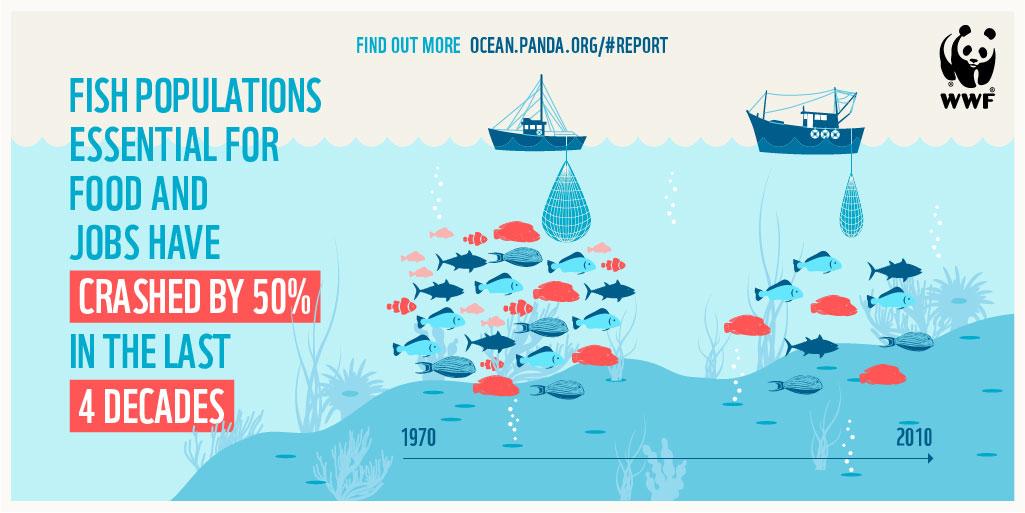Ahmedabad
(Head Office)Address : 506, 3rd EYE THREE (III), Opp. Induben Khakhrawala, Girish Cold Drink Cross Road, CG Road, Navrangpura, Ahmedabad, 380009.
Mobile : 8469231587 / 9586028957
Telephone : 079-40098991
E-mail: dics.upsc@gmail.com

Blue Food
News: A new study suggests that blue food sourced from aquatic environments can help reduce nutritional deficiencies and contribute to employment and export revenue in India.
What is Blue Food?
Blue food is food derived from aquatic animals, plants or algae that are caught or cultivated in freshwater and marine environments.
Importance of Blue Food:
Blue foods are important for the economies, livelihoods, nutritional security, and cultures of people in many countries.
They supply protein to over 3.2 billion people, are a key source of nutrients in many coastal, rural and indigenous communities, and support the livelihoods of over 800 million people, the majority of whom work in small-scale systems.
They generate lower emissions compared to terrestrial meat.
Aquatic foods can also be used to address B12 and omega-3 deficiencies in India.
Over 91% of countries with vitamin B12 deficiencies also show high levels of omega-3 deficiency
It could help address risk from cardiovascular diseases.
Blue foods can help improve nutrition, livelihoods or national revenue for the global south and indigenous communities in the global north.
Issues associated with Blue Food:
Accidental capture of non-target species in fishing nets, which can lead to the death of these animals.
Presence of pollutants such as heavy metals, microplastics in ocean can affect quality and safety of seafood.
There have been instances of mislabeling of seafood products, where a cheaper fish is sold as a more expensive one.
Almost 90% of global marine fish stocks are now fully exploited or overfished according to the World Bank, which is an issue with overfishing, illegal fishing, and other unsustainable aquatic food production.
Way Forward
Governments, NGOs, and the private sector should work together to increase awareness about the benefits of blue food and its potential to address malnutrition, poverty, and environmental degradation.
Fishing practices that are unsustainable, such as overfishing, destructive fishing methods, and bycatch, need to be addressed to ensure that fish stocks are not depleted and the marine ecosystem is protected.
Aquaculture can be a sustainable way of producing blue food if it is done in an environmentally responsible manner.
Governments can promote the development of sustainable aquaculture practices by providing technical assistance, training, and incentives.

Address : 506, 3rd EYE THREE (III), Opp. Induben Khakhrawala, Girish Cold Drink Cross Road, CG Road, Navrangpura, Ahmedabad, 380009.
Mobile : 8469231587 / 9586028957
Telephone : 079-40098991
E-mail: dics.upsc@gmail.com
Address: A-306, The Landmark, Urjanagar-1, Opp. Spicy Street, Kudasan – Por Road, Kudasan, Gandhinagar – 382421
Mobile : 9723832444 / 9723932444
E-mail: dics.gnagar@gmail.com
Address: 2nd Floor, 9 Shivali Society, L&T Circle, opp. Ratri Bazar, Karelibaugh, Vadodara, 390018
Mobile : 9725692037 / 9725692054
E-mail: dics.vadodara@gmail.com
Address: 403, Raj Victoria, Opp. Pal Walkway, Near Galaxy Circle, Pal, Surat-394510
Mobile : 8401031583 / 8401031587
E-mail: dics.surat@gmail.com
Address: 303,305 K 158 Complex Above Magson, Sindhubhavan Road Ahmedabad-380059
Mobile : 9974751177 / 8469231587
E-mail: dicssbr@gmail.com
Address: 57/17, 2nd Floor, Old Rajinder Nagar Market, Bada Bazaar Marg, Delhi-60
Mobile : 9104830862 / 9104830865
E-mail: dics.newdelhi@gmail.com